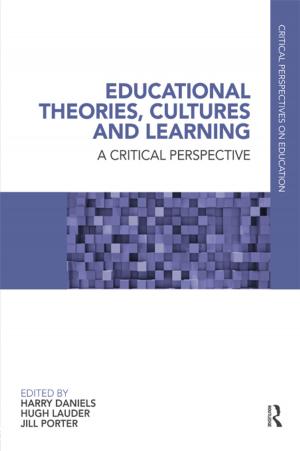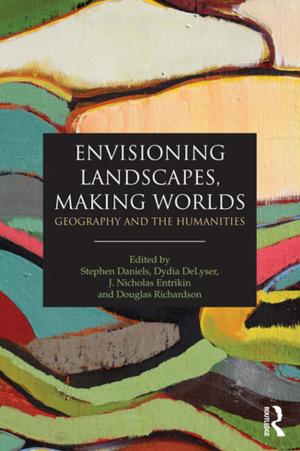Constructed Ecologies
Critical Reflections on Ecology with Design
Nonfiction, Art & Architecture, Architecture, Landscape| Author: | Margaret Grose | ISBN: | 9781317495253 |
| Publisher: | Taylor and Francis | Publication: | March 16, 2017 |
| Imprint: | Routledge | Language: | English |
| Author: | Margaret Grose |
| ISBN: | 9781317495253 |
| Publisher: | Taylor and Francis |
| Publication: | March 16, 2017 |
| Imprint: | Routledge |
| Language: | English |
Today, designers are shifting the practice of landscape architecture towards the need for a more complex understanding of ecological science. Constructed Ecologies presents ecology as critical theory for design, and provides major ideas for design that are supported with solid and imaginative science.
In the questioning narrative of Constructed Ecologies, the author discards many old and tired theories in landscape architecture. With detailed documentation, she casts off the savannah theory, critiques the search for universals, reveals the needed role of designers in large-scale agriculture, abandons the overlay technique of McHarg, and introduces the ecological and urban health urgency of public night lighting.
Margaret Grose presents wide-ranging new approaches and shows the importance of learning from science for design, of going beyond assumptions, of working in multiple rather than single issues, of disrupting linear design thinking, and of dealing with data. This book is written with a clear voice by an ecologist and landscape architect who has led design students into loving ecological science for the support it gives design.
Today, designers are shifting the practice of landscape architecture towards the need for a more complex understanding of ecological science. Constructed Ecologies presents ecology as critical theory for design, and provides major ideas for design that are supported with solid and imaginative science.
In the questioning narrative of Constructed Ecologies, the author discards many old and tired theories in landscape architecture. With detailed documentation, she casts off the savannah theory, critiques the search for universals, reveals the needed role of designers in large-scale agriculture, abandons the overlay technique of McHarg, and introduces the ecological and urban health urgency of public night lighting.
Margaret Grose presents wide-ranging new approaches and shows the importance of learning from science for design, of going beyond assumptions, of working in multiple rather than single issues, of disrupting linear design thinking, and of dealing with data. This book is written with a clear voice by an ecologist and landscape architect who has led design students into loving ecological science for the support it gives design.















